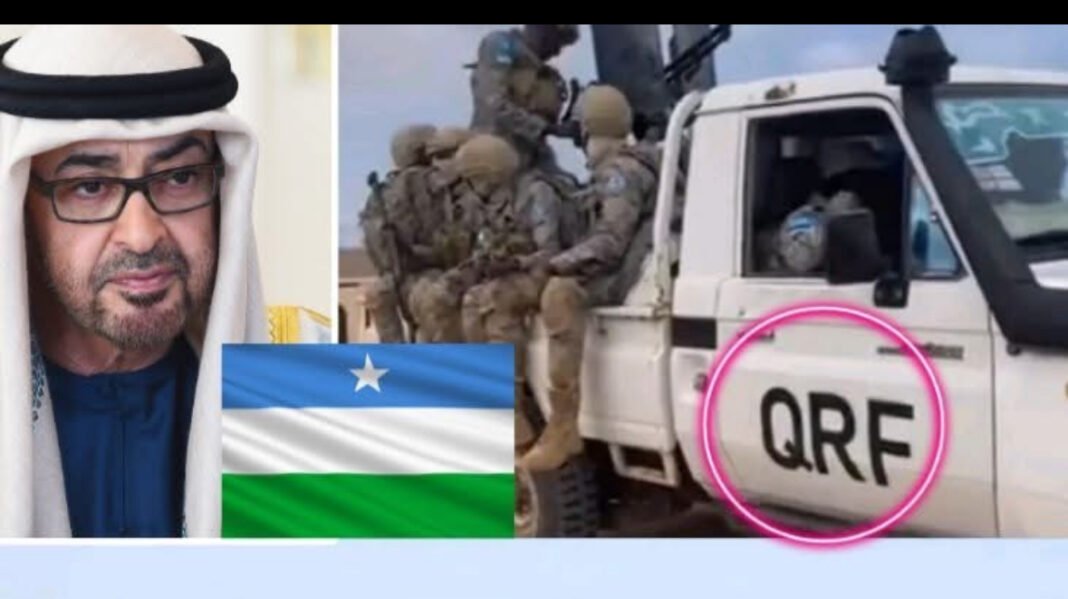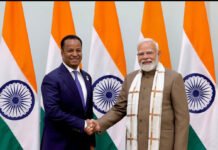Reporting by: HAN News Desk
GAROWE — The United Arab Emirates (UAE) has reportedly established a new military unit in Somalia’s Puntland region known as the Quick Response Forces (QRF) — a contingent described as equivalent to Sudan’s Rapid Support Forces (RSF). The unit is said to consist of paid fighters trained and equipped to operate as a rapid deployment force.
According to local sources, the QRF’s first operations are expected to begin in the Mudug and Nugaal regions, coinciding with upcoming visits planned by Puntland President Said Abdullahi Deni.
Analysts and political observers have expressed deep concern over the move, describing it as a violation of Somalia’s sovereignty. The initiative, they warn, mirrors the UAE’s controversial involvement in Sudan, where Abu Dhabi has been accused of supporting paramilitary groups such as the RSF.
The establishment of a UAE-backed military base and the creation of a parallel armed force in Puntland are viewed by critics as part of a broader strategy by the Emirates to expand its military and economic footprint in the Horn of Africa — including access to Somalia’s natural resources such as gold and other minerals.
“It is deeply regrettable that Puntland has become a client for foreign interests,” one Somali analyst commented. “Such alliances undermine national unity and sovereignty under the illusion of regional empowerment.”
The UAE has previously invested heavily in infrastructure and port operations in Puntland, notably through its ties with DP World, but its growing military presence has sparked tension between regional and federal authorities in Mogadishu.
Political observers warn that foreign-backed security initiatives risk fragmenting Somalia’s security architecture, empowering regional militias at the expense of national cohesion. The creation of the QRF could also heighten competition between Puntland’s administration and the federal government, which insists that all military training and defense cooperation agreements must be approved through national institutions.
The development comes at a time of heightened geopolitical competition in the Horn of Africa, as foreign powers vie for influence along the strategic Red Sea corridor.




